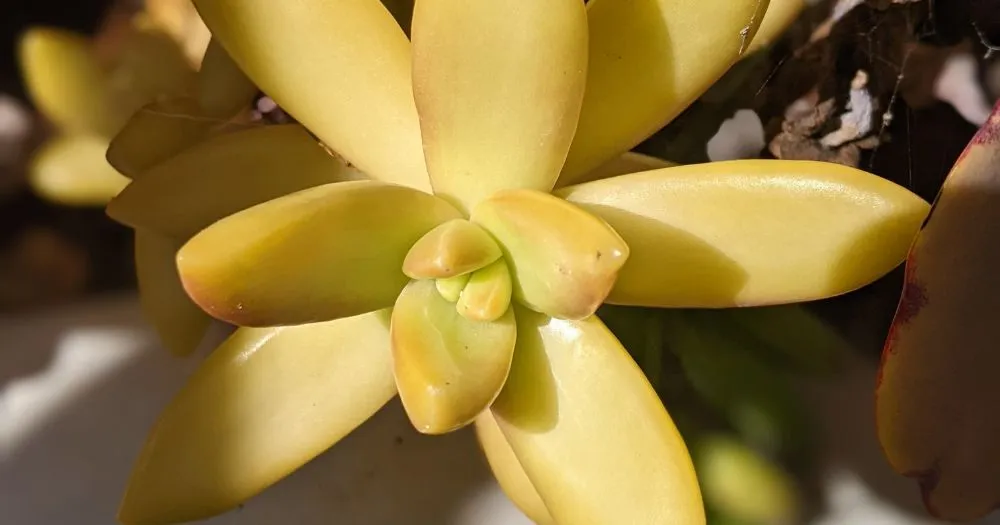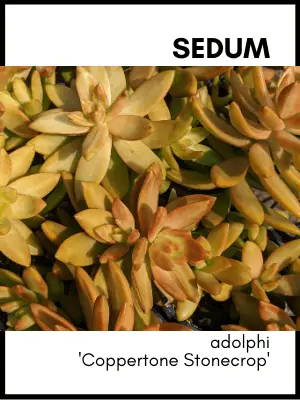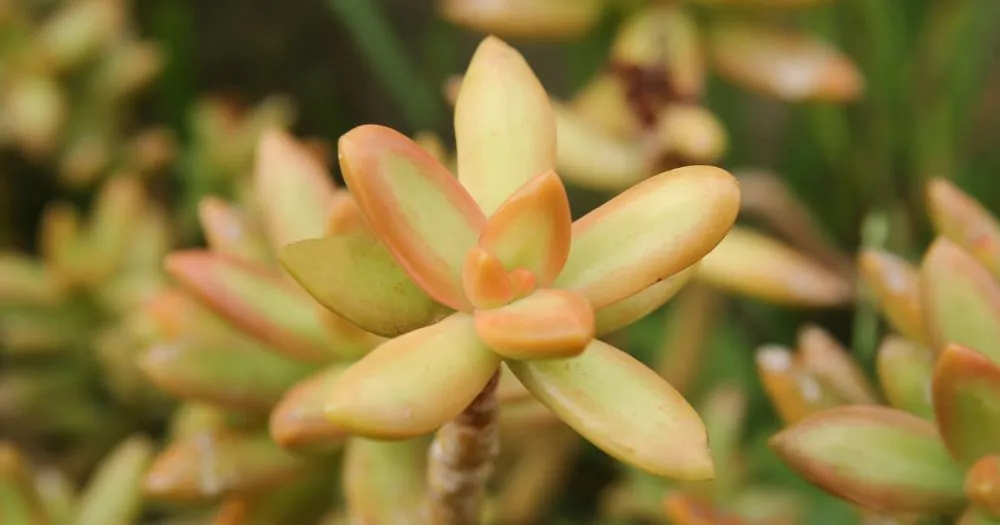
Sedum adolphii ‘Golden Sedum’ is a beautiful succulent with elongated, lime-green leaves that turn golden yellow with direct sunlight. This plant grows in a trailing habit, forming low mats or cascading over the sides of containers.

Source: Etsy
Sedum adolphii ‘Golden Sedum’ blooms with small yellow flowers in the summer, attracting bees and butterflies. The plant can reach up to 8 inches in height and up to 2 feet in width
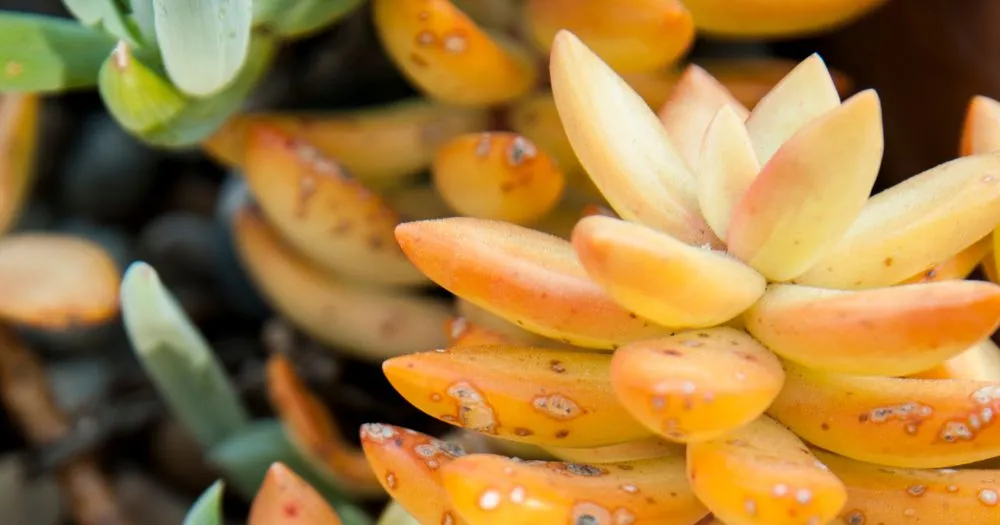
Dig in!

Origin/Native Habitat
Sedum adolphii ‘Golden Sedum’ is native to Mexico and is commonly found in rocky areas, including cliffs and hillsides.
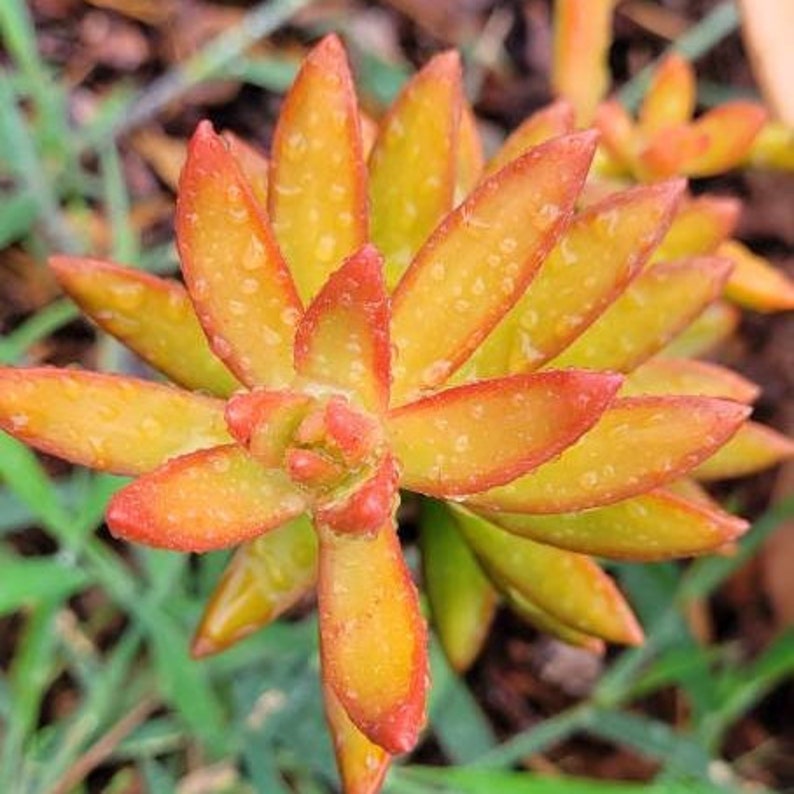
Source: Etsy
You might also like: Native Habitats of Succulents: Explore 3 Incredibly Diverse Environments
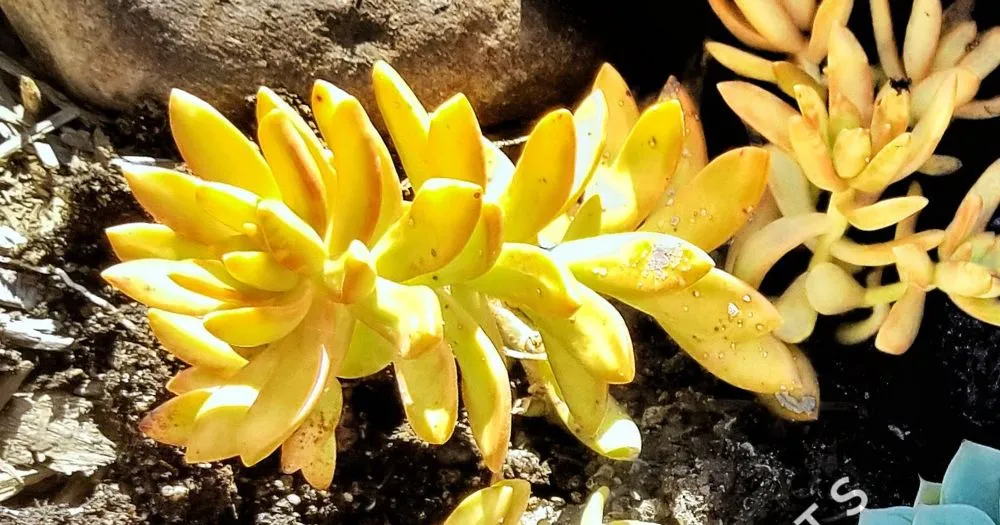
How to Water and Fertilize
Water Sedum adolphii ‘Golden Sedum’ when the soil has completely dried out. Overwatering can lead to root rot, so it is important to avoid keeping the soil too moist.
When you’re rooting or transplanting your succulents and cacti, use SUPERthrive to help reduce the chance of transplant shock and grow a strong root system.
During the growing season, feed Sedum adolphii with a balanced, water-soluble fertilizer every two to three weeks.
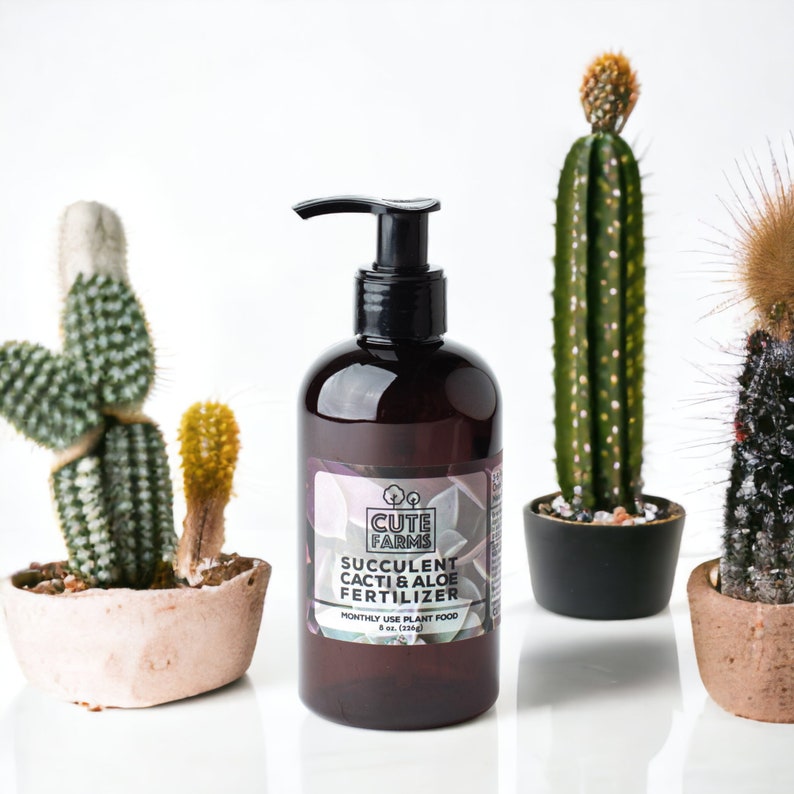
Succulent fertilizer available to purchase on Etsy.
You might also like: How and When to Water Succulents So They Don’t Die (2023 Update)
Succulent Fertilizer: The Ultimate Guide to Healthy Succulents + 8 DIY Fertilizer Recipes
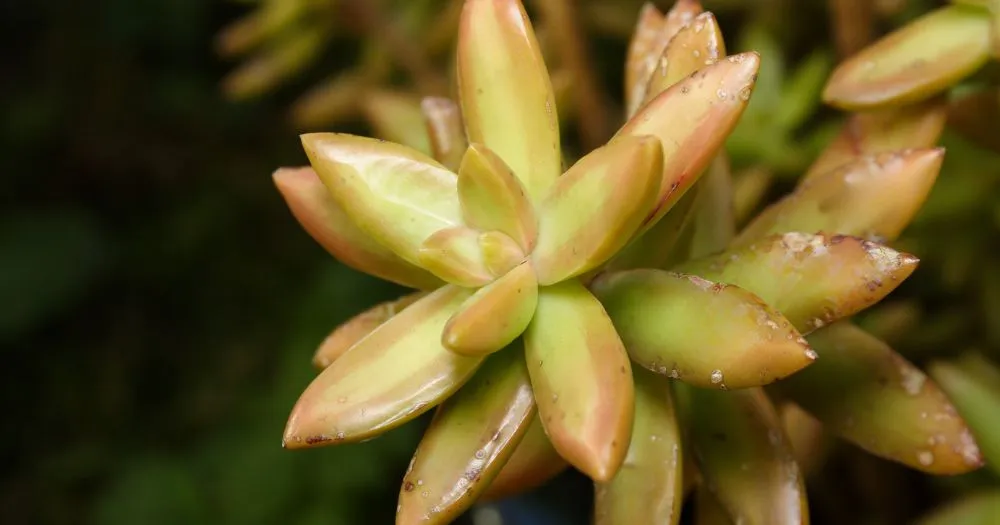
Soil
Sedum adolphii ‘Golden Sedum’ prefers well-draining soil, such as a mix of succulent soil, Turface, pumice, perlite, and coarse sand.
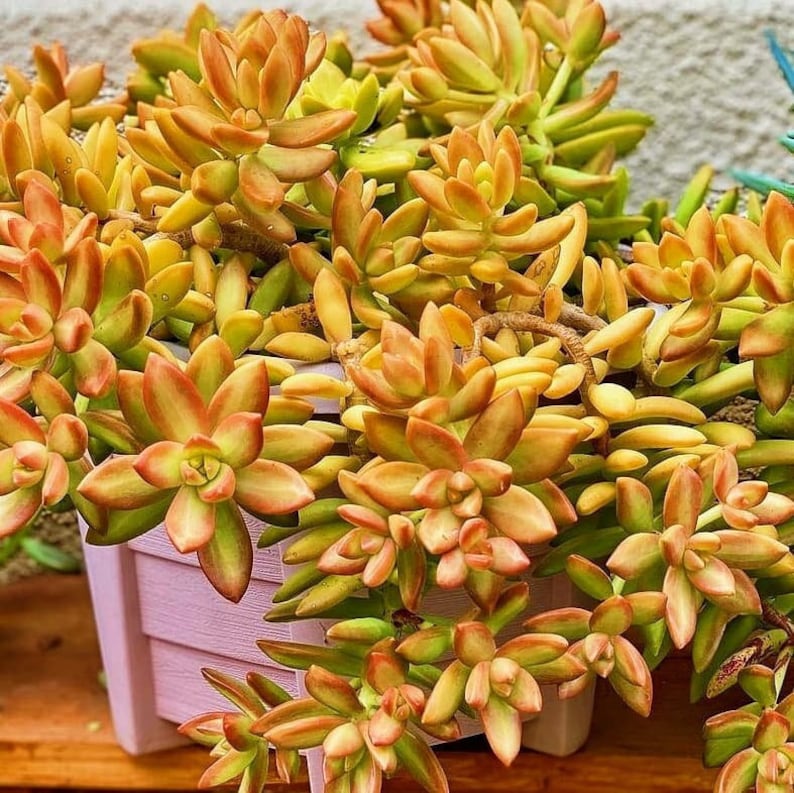
Source: Etsy
Planting Sedum adolphii in a terracotta pot will help absorb excess moisture from the soil.
You might also like: Succulent Soil: Ultimate Guide and 4 DIY Recipes to Keep Your Succulents Happy and Healthy
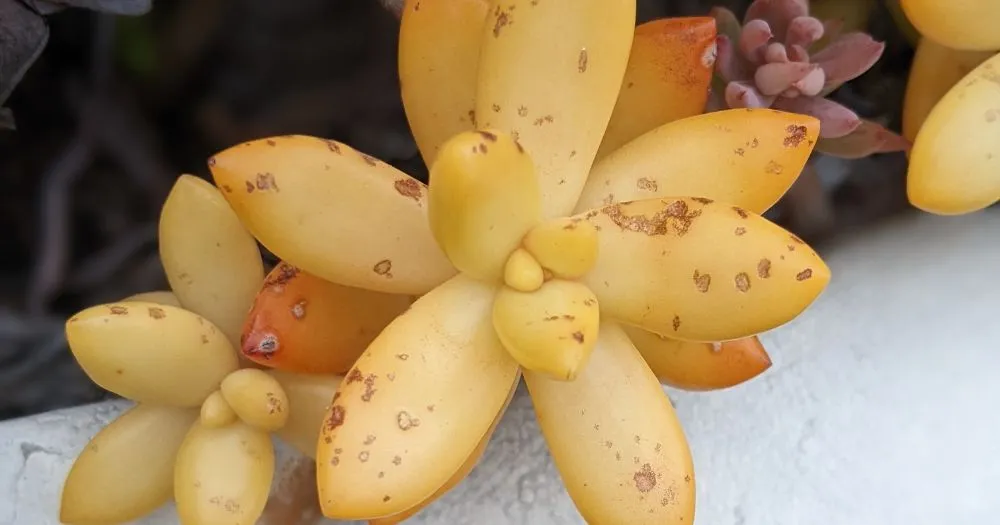
How to Propagate
Propagation is a great way to expand your collection of Sedum adolphii ‘Golden Sedum’ and is an easy process to carry out. Stem cuttings are a simple way to propagate this succulent.
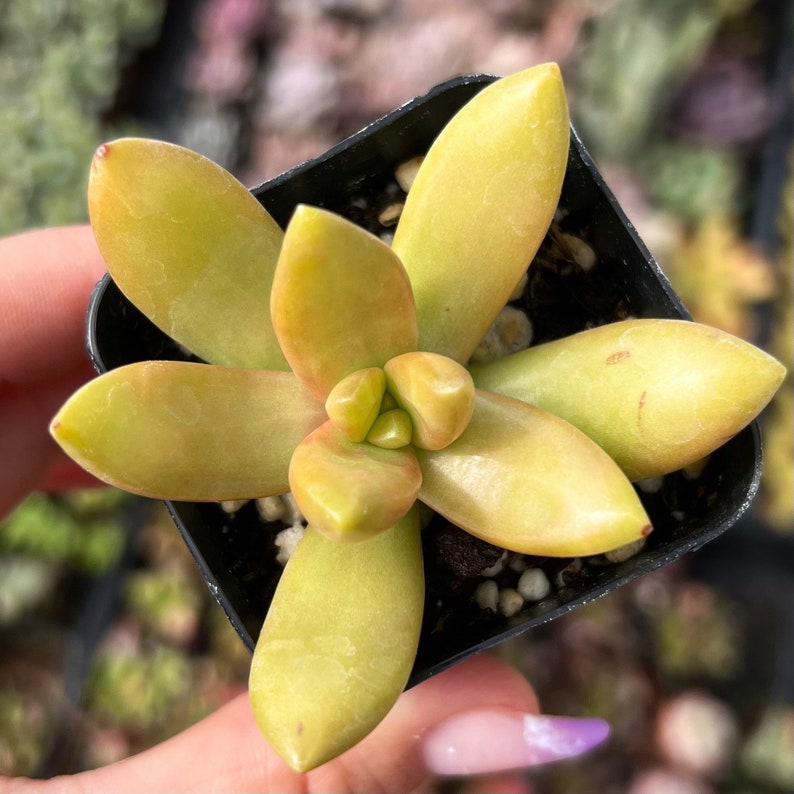
Source: Etsy
First, select a healthy stem from the mother plant and use a clean, sharp pair of scissors to cut it. Ensure that the stem is at least two inches long and remove the lower leaves, leaving just a few leaves at the top. Once you have your stem cutting, allow it to dry for a day or two to prevent rotting.
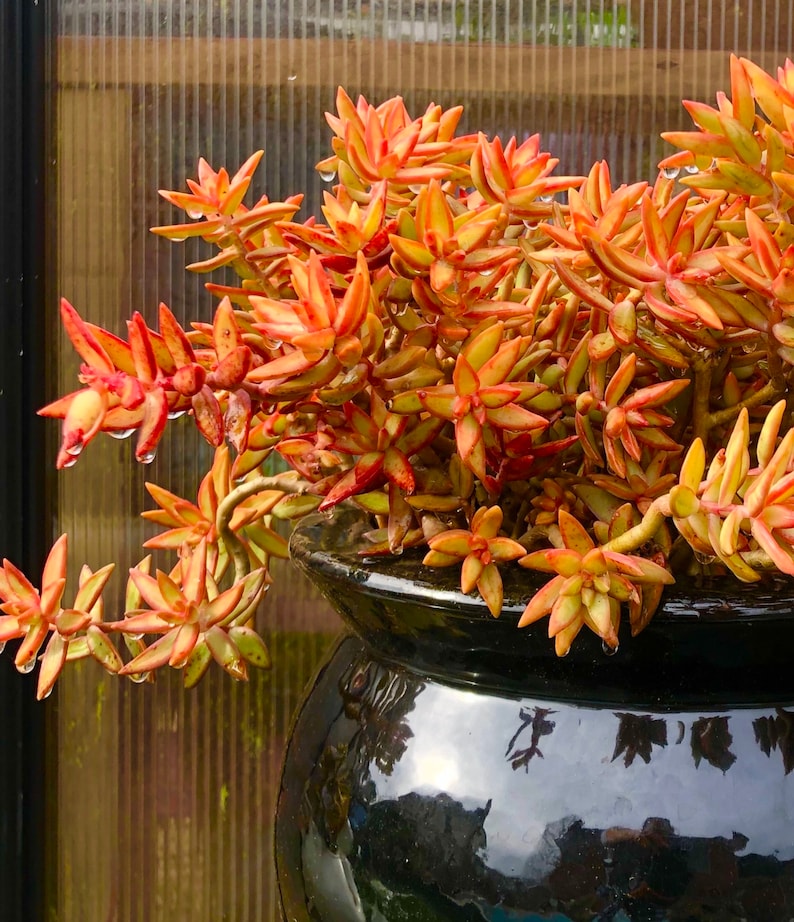
Source: Etsy
You might also like: 9 Stunningly Realistic LEGO Succulents in a Set to Transform Your Home Decor and Have Fun While Building It
After the cutting has dried, plant it in a pot with well-draining soil. You can use a combination of succulent potting mix and perlite to create a suitable growing medium. Make a small hole in the soil with your finger or a pencil, insert the stem cutting and firm the soil around it. Water the cutting sparingly, only enough to keep the soil slightly moist. Place the pot in a bright, indirect light location and wait for new growth to appear.
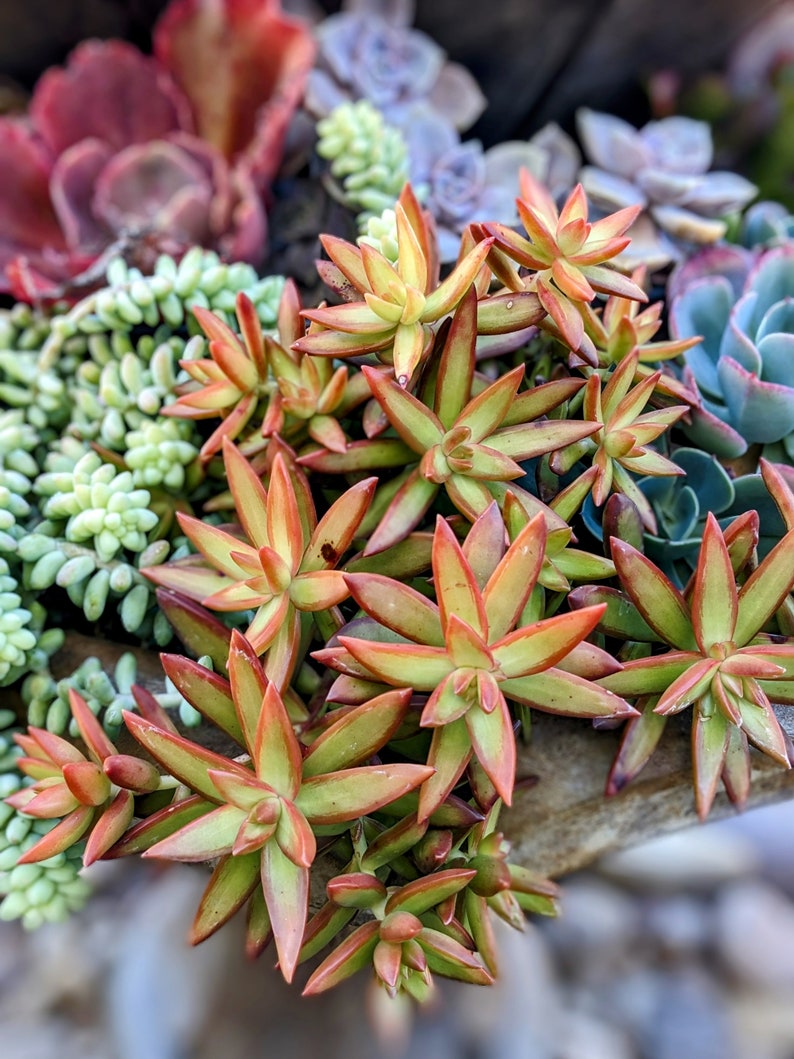
Source: Etsy
You might also like: Sedum hernandezii: Get to Know This Awesome Succulent with the coolest texture
Look for small rosettes that are growing close to the base of the plant. Gently remove them with a clean, sharp knife or scissors, ensuring that you also take some of the stem.
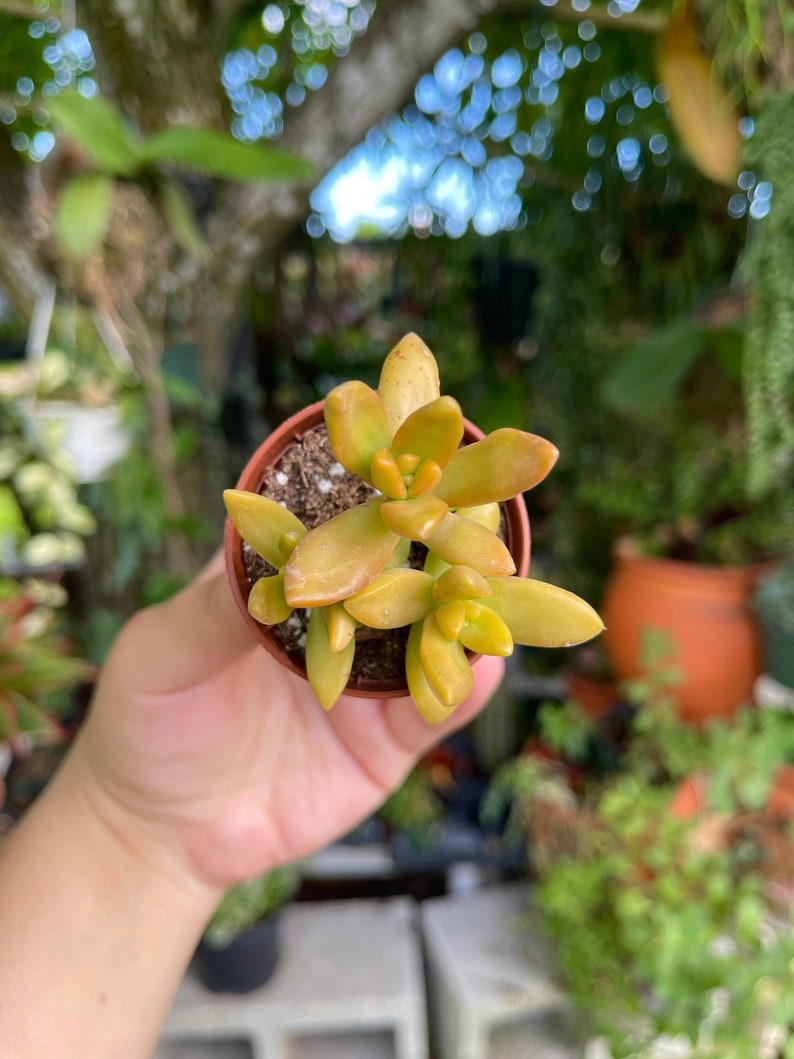
Source: Etsy
Allow the offsets to dry for a day or two before planting them in well-draining soil. Water them sparingly and place them in a bright, indirect light location. With proper care, the offsets will take root and begin to grow into new plants.
You might also like: Propagating Succulents 4 Ways: The Best Guide Ever
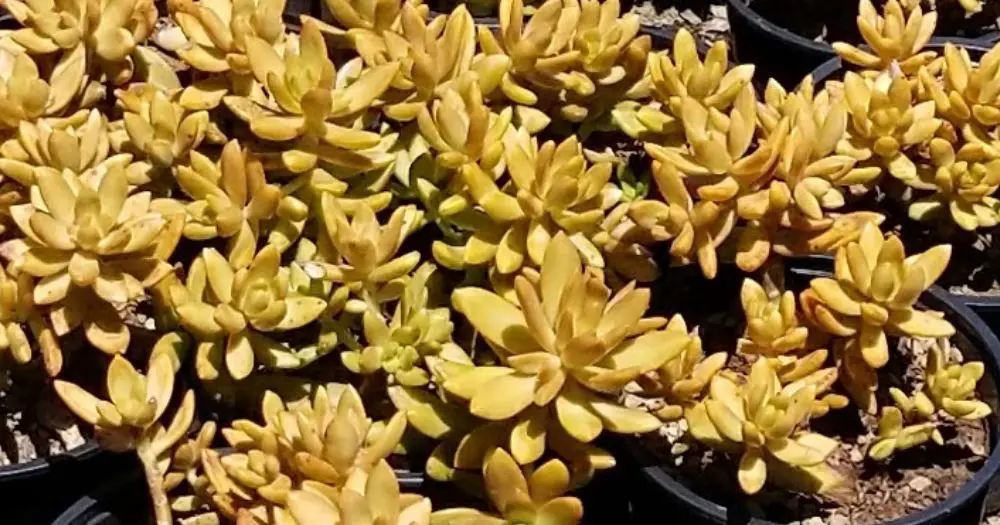
Light Requirements
Sedum adolphii ‘Golden Sedum’ prefers bright, direct sunlight for at least six hours a day. However, it can also grow in partial shade.
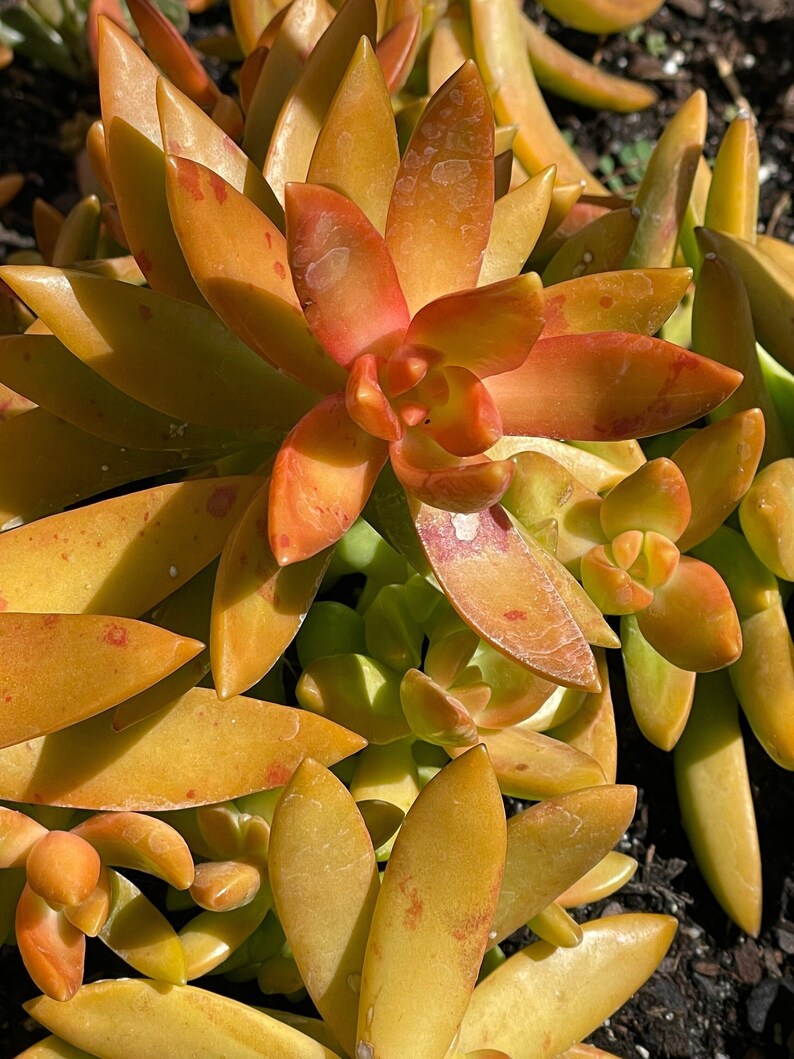
Source: Etsy
If the Sedum adolphii is not getting enough light, the leaves may become greener and lose their yellow color.
You might also like: How Much Light Do Succulents Need? A Comprehensive Guide in 12 Parts
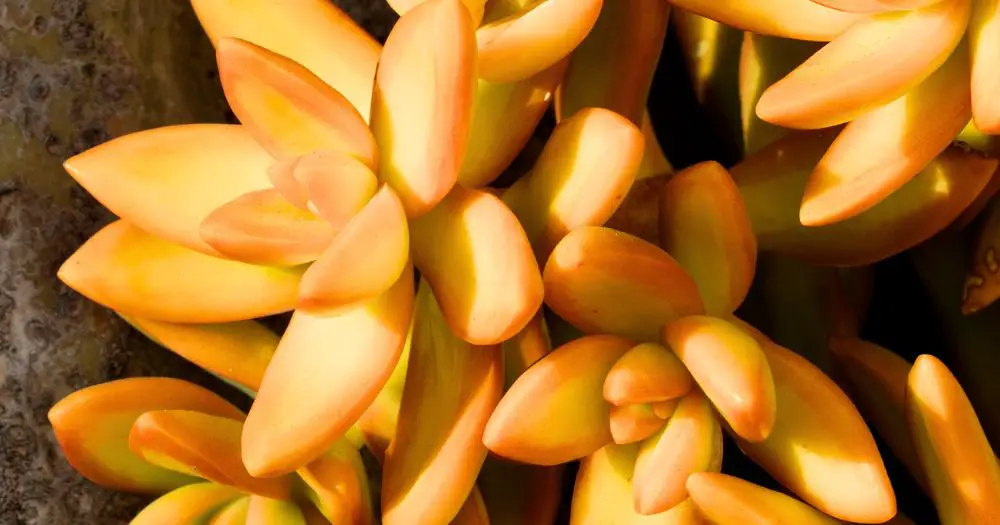
Hardiness Zone and Temperature
Sedum adolphii ‘Golden Sedum’ is hardy in USDA hardiness zones 9-11 and can tolerate temperatures down to 20°F (-6.7°C).
You might also like: The 7 Hardiness Zones Where Succulents Easily Thrive
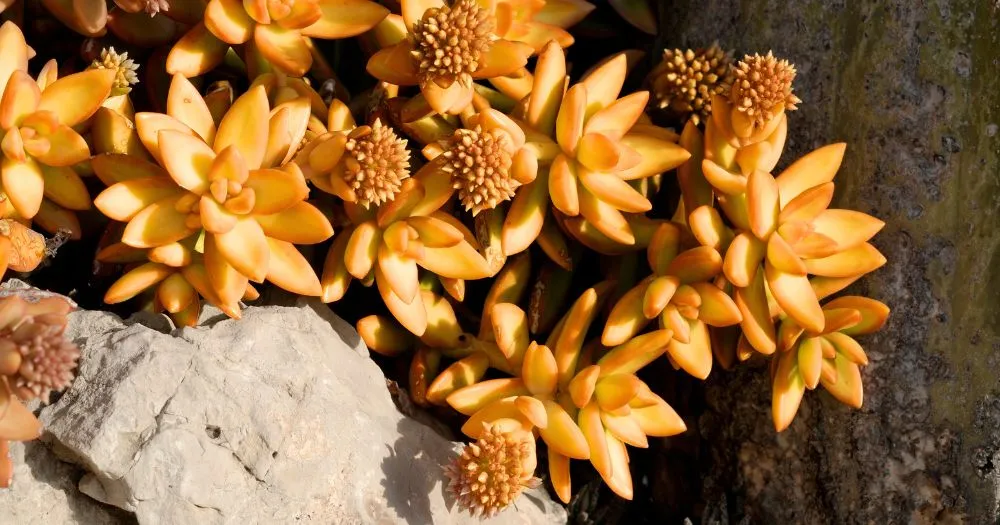
Common Pests, Problems and Solutions
Sedum adolphii ‘Golden Sedum’ is generally a hardy succulent, but it can still fall prey to a few pests and diseases.
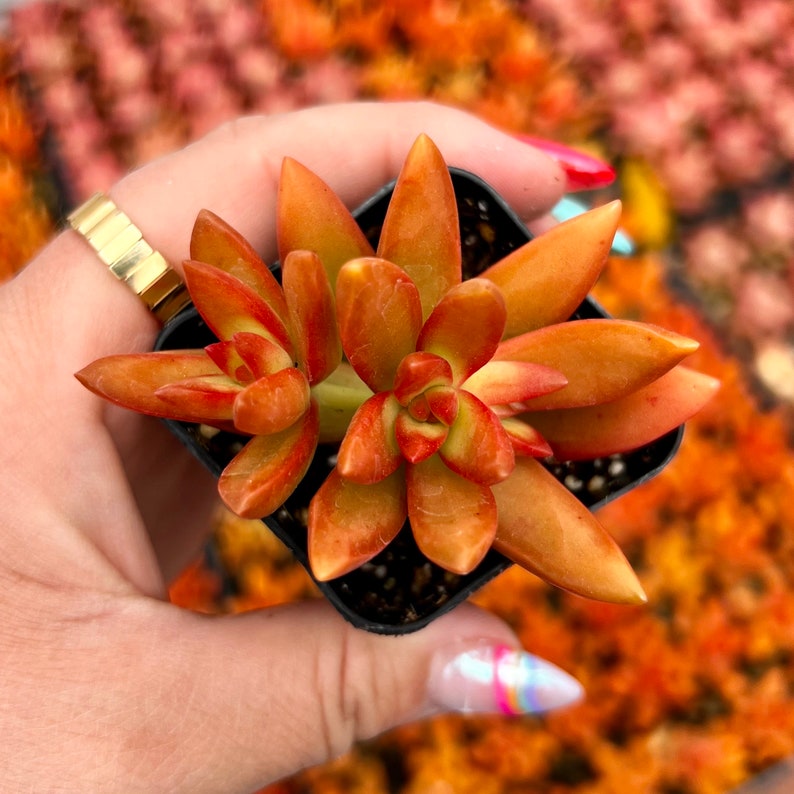
Source: Etsy
Mealybugs are one of the most common pests that affect Sedum adolphii. These pests feed on the sap of the plant and leave behind a white, cotton-like substance on the leaves.
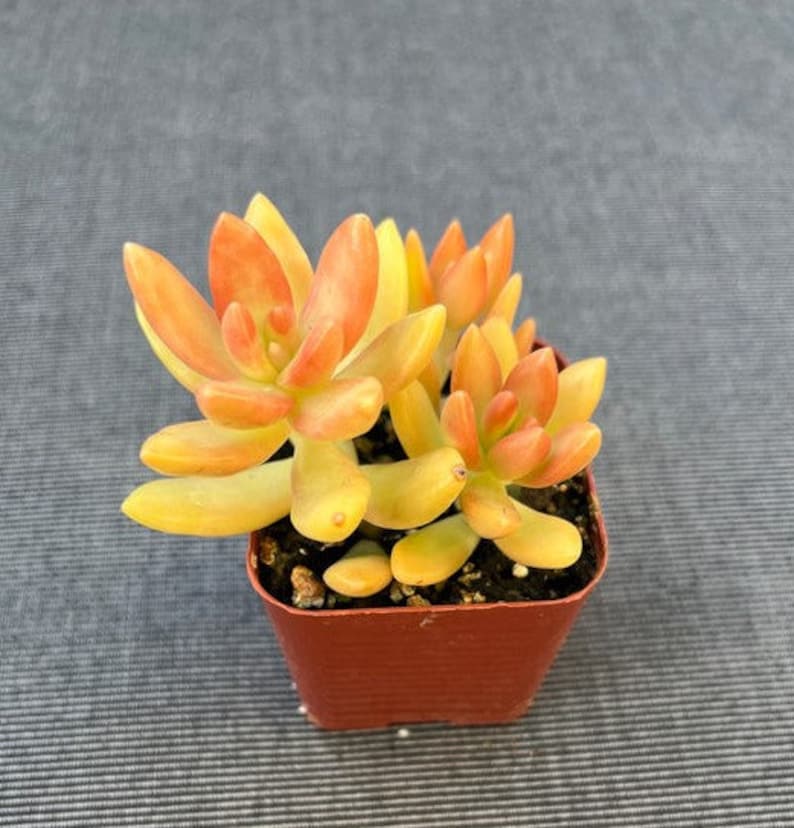
Source: Etsy
To get rid of mealybugs, it’s important to identify them early and take action quickly. You can use insecticidal soap or neem oil to eliminate these pests. Another option is to use a cotton swab dipped in rubbing alcohol to remove them from the plant.
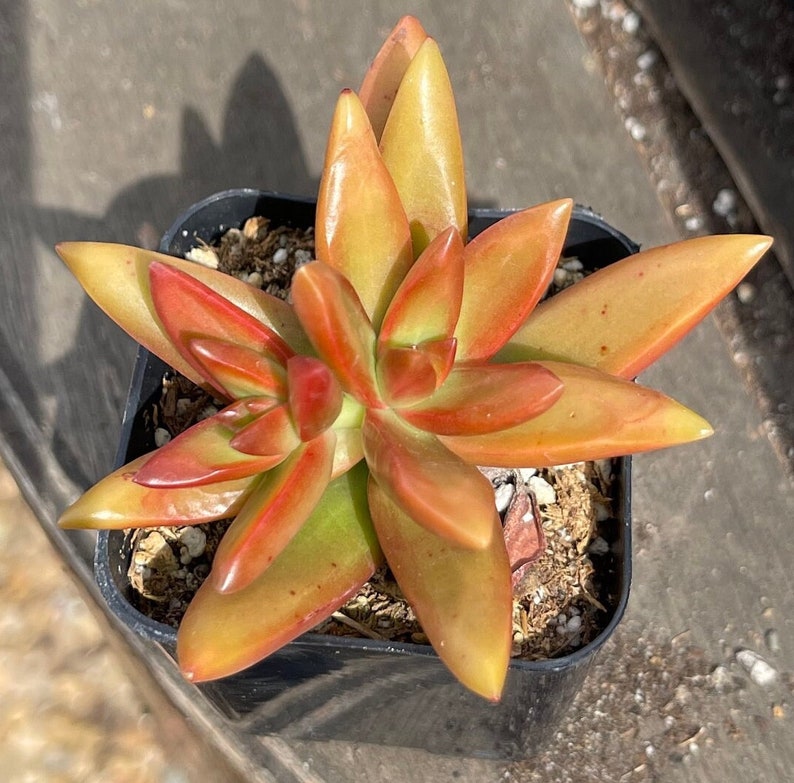
Source: Etsy
You might also like: Summer Succulent Care: Keep Your Plants Happy During the Warm Months
Spider mites are another common pest that can infest ‘Golden Sedum’. These tiny pests feed on the plant’s leaves, sucking the juices out of them and causing them to wilt and turn yellow.
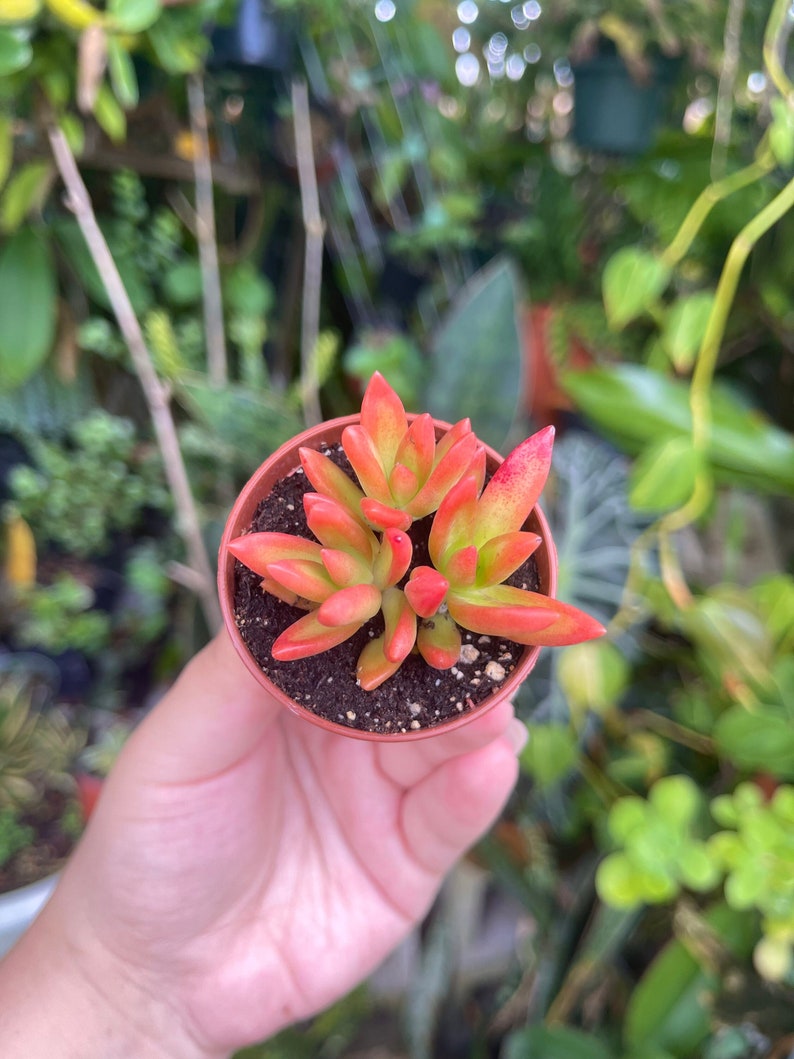
Source: Etsy
To get rid of spider mites, wash the plant thoroughly with a strong jet of water, making sure to get underneath the leaves where the pests like to hide. You can also use neem oil or insecticidal soap to eliminate these pests.
You might also like: Drainage Hole at the Bottom of The Pot: Do Succulents Need Them? The Answer Might Completely Shock You!
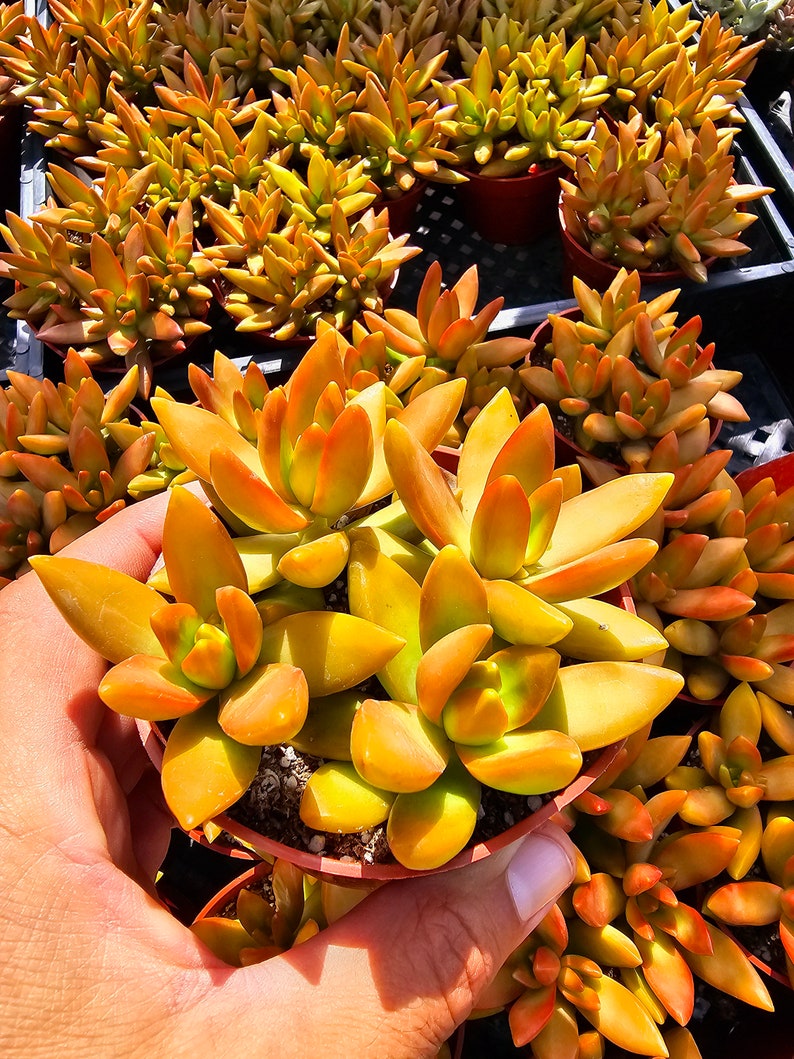
Source: Etsy
Aphids are another pest that can affect Sedum adolphii ‘Golden Sedum’. These pests are small, soft-bodied insects that can be black, brown, green, yellow or white. They feed on the sap of the plant and can cause distorted growth and yellowing of leaves.
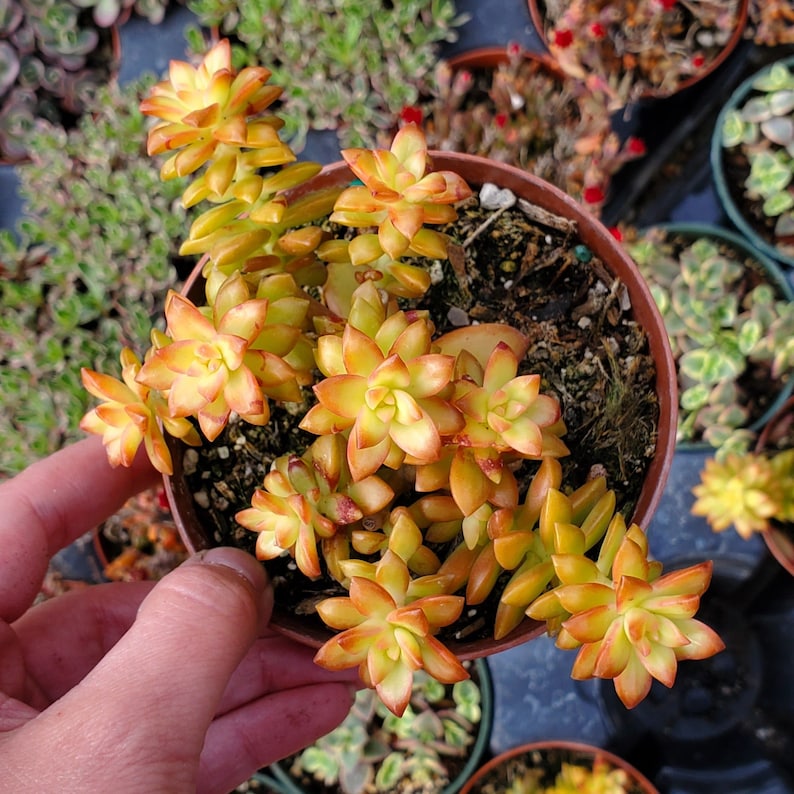
Source: Etsy
To eliminate aphids, you can use insecticidal soap or neem oil, or simply wash them off the plant with a strong jet of water.
You might also like: Root Rot in Succulents: How to Identify and Treat the Problem
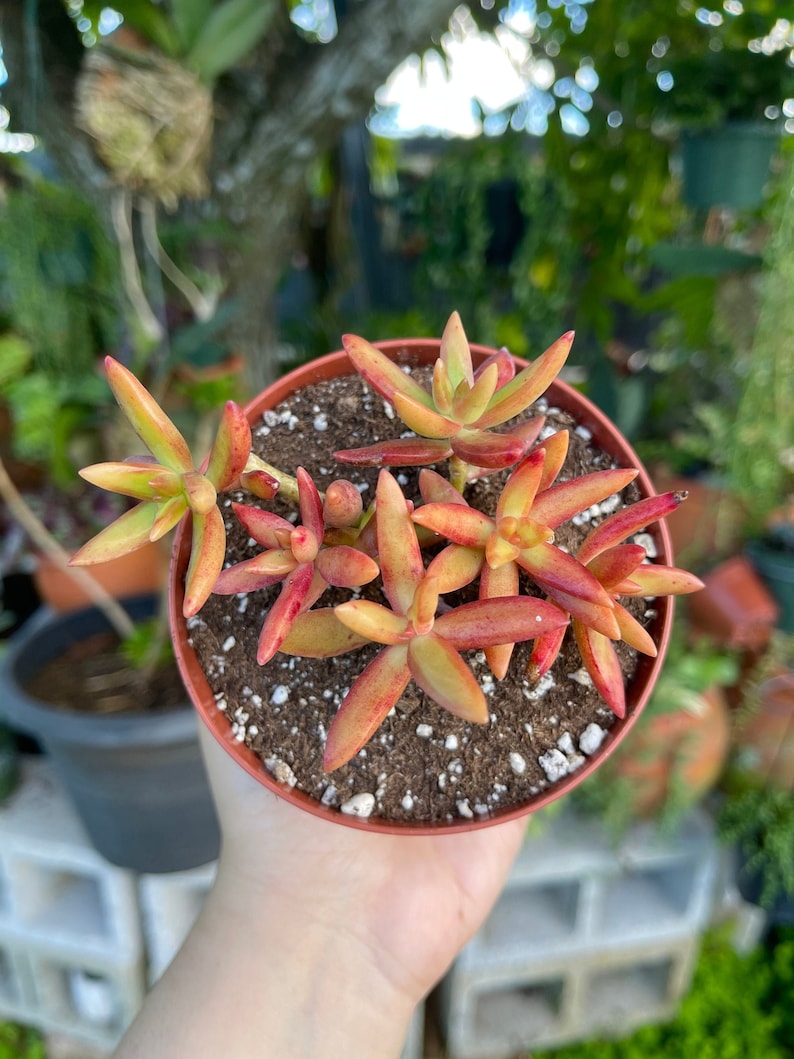
Source: Etsy
Other common problems that can affect Sedum adolphii ‘Golden Sedum’ include root rot, which is caused by overwatering, and sunburn, which can occur if the plant is exposed to too much direct sunlight.
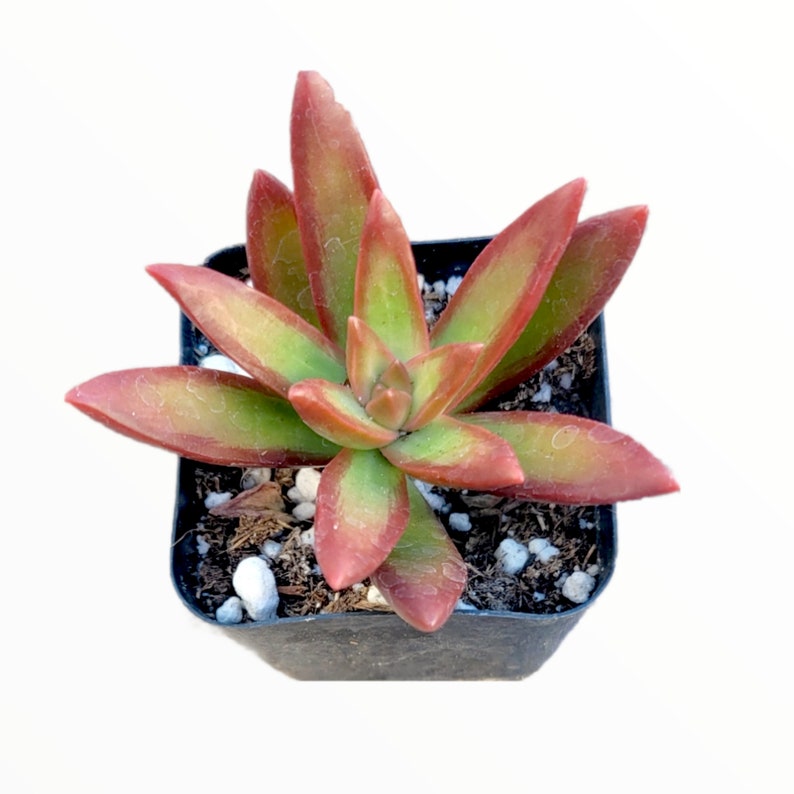
Source: Etsy
To avoid these problems, make sure to water Sedum adolphii sparingly, allowing the soil to dry out between waterings, and provide it with bright, indirect light. If you notice any signs of root rot, such as brown, mushy roots or wilting leaves, remove the affected parts of the plant and repot it in fresh, well-draining soil.
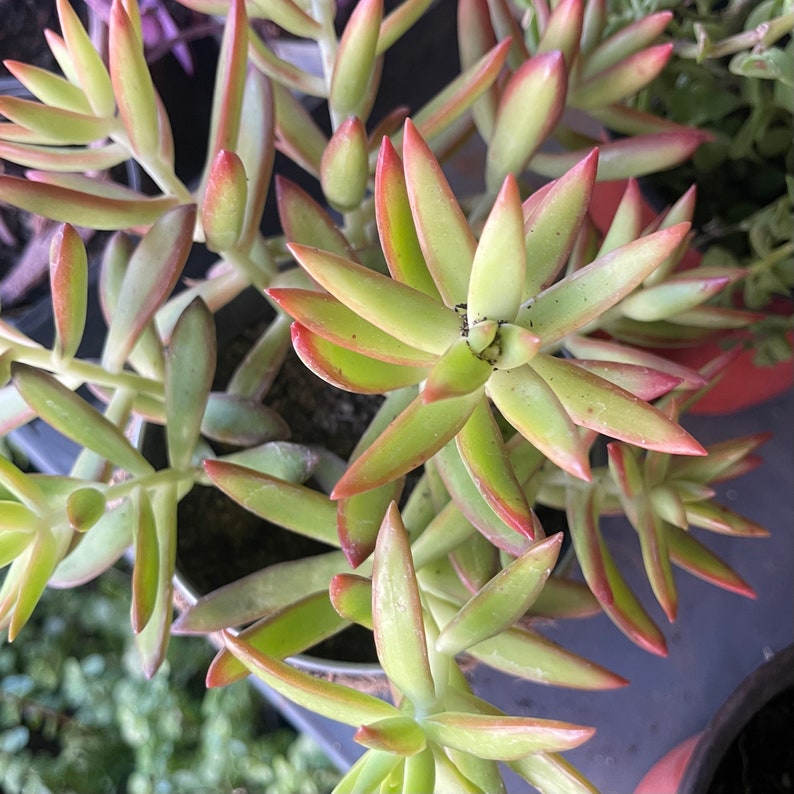
Source: Etsy
If your Sedum adolphii is experiencing sunburn, move it to a location with more shade and gradually increase the amount of light it receives.
You might also like: 12 Succulent Pests and Diseases: Identification, Treatment, and Easy Prevention of Mealybugs, Thrips and More
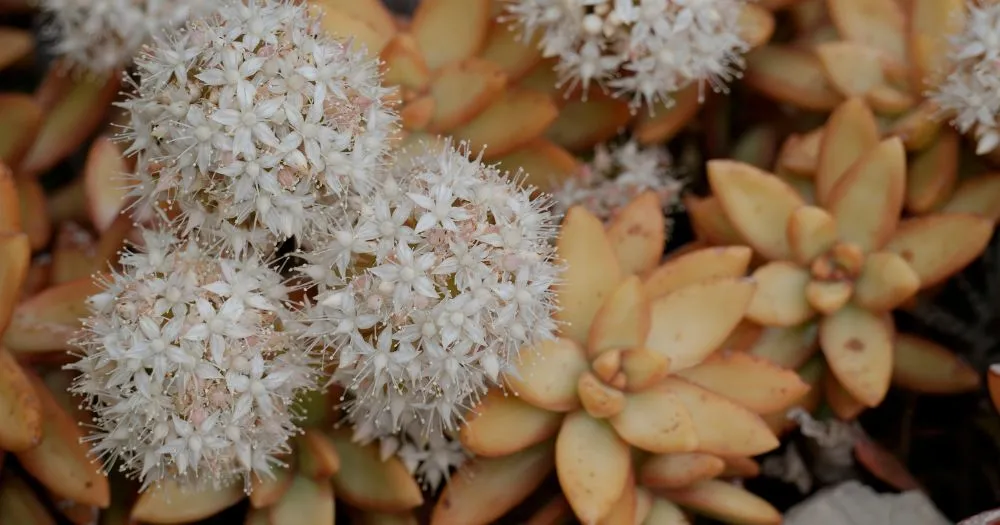
Is it Poisonous or Toxic?
Sedum adolphii ‘Golden Sedum’ is not toxic to humans or pets.
You might also like: Are Succulents Poisonous to Dogs?
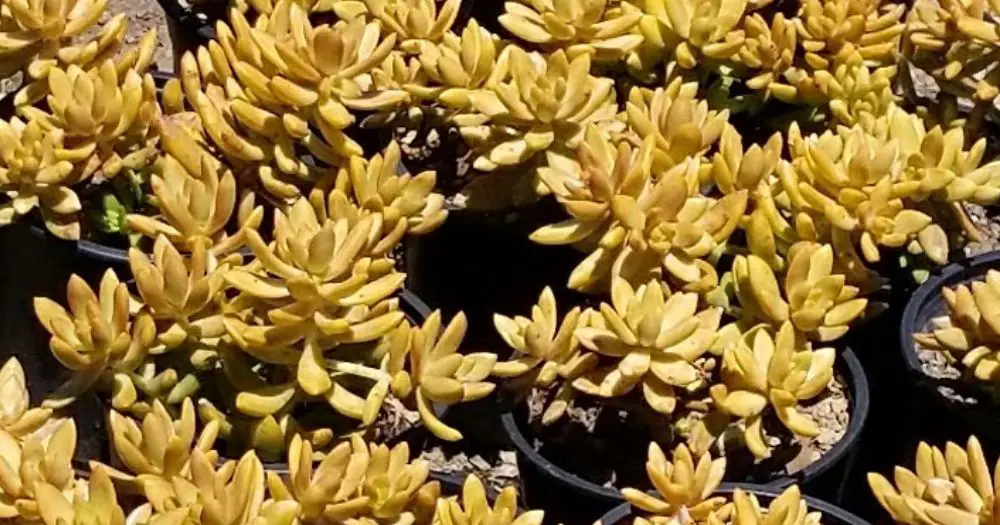
Strengthen Your Sedum adolphii
You might also like: The ONE Simple Thing Succulents Need to Thrive and 5 Reasons Why Wind is It
